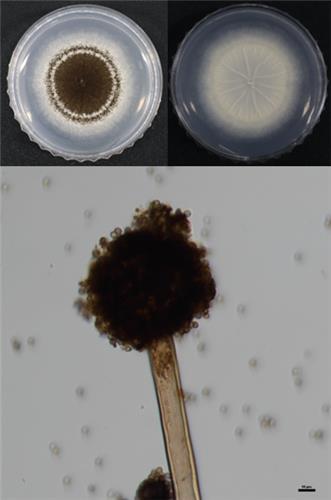
SEOUL -- A strain capable of producing mycoprotein, one of the key alternative meat ingredients, has been discovered in a river on the southern resort island of Jeju. The extracted mycoprotein can be used for providing cultured meat products with real meat flavor. Mycoprotein (fungal protein) is a protein produced by fungi such as mold and mushrooms.
The Nakdonggang National Institute of Biological Resource said that they have discovered a strain called "Aspergillus tubingensis," in Jungmun Stream that flows in the southern part of Jeju. The institute said in a statement on March 5 that it applied for a patent for the special strain and is conducting follow-up research.
According to researchers, Aspergillus tubingensis consists of more than 30 percent protein, with amino acids accounting for over 12 percent. Amino acid is a naturally occurring ingredient that induces rich flavor also known as "Umami."
The researchers said that the newly-found strain contains mycoprotein that has a similar texture to that of chicken breast meat. Mycoprotein is commonly used in alternative meat products thanks to its key characteristics -- zero cholesterol, low-fat content, and a significant amount of dietary fiber.
The institute expressed hope that this research would contribute to diversifying alternative protein sources and domestication. Data released by Statista, a global market analysis firm, the global market for alternative meat is projected to stand at $16.7 billion in 2028 with an annual average growth rate of 10.2 percent.
Copyright ⓒ Aju Press All rights reserved.


![[K-Tech] Vegan meat gains global momentum. In Korea, its a harder sell.](https://image.ajunews.com/content/image/2025/08/19/20250819085345169133_278_163.jpg)

